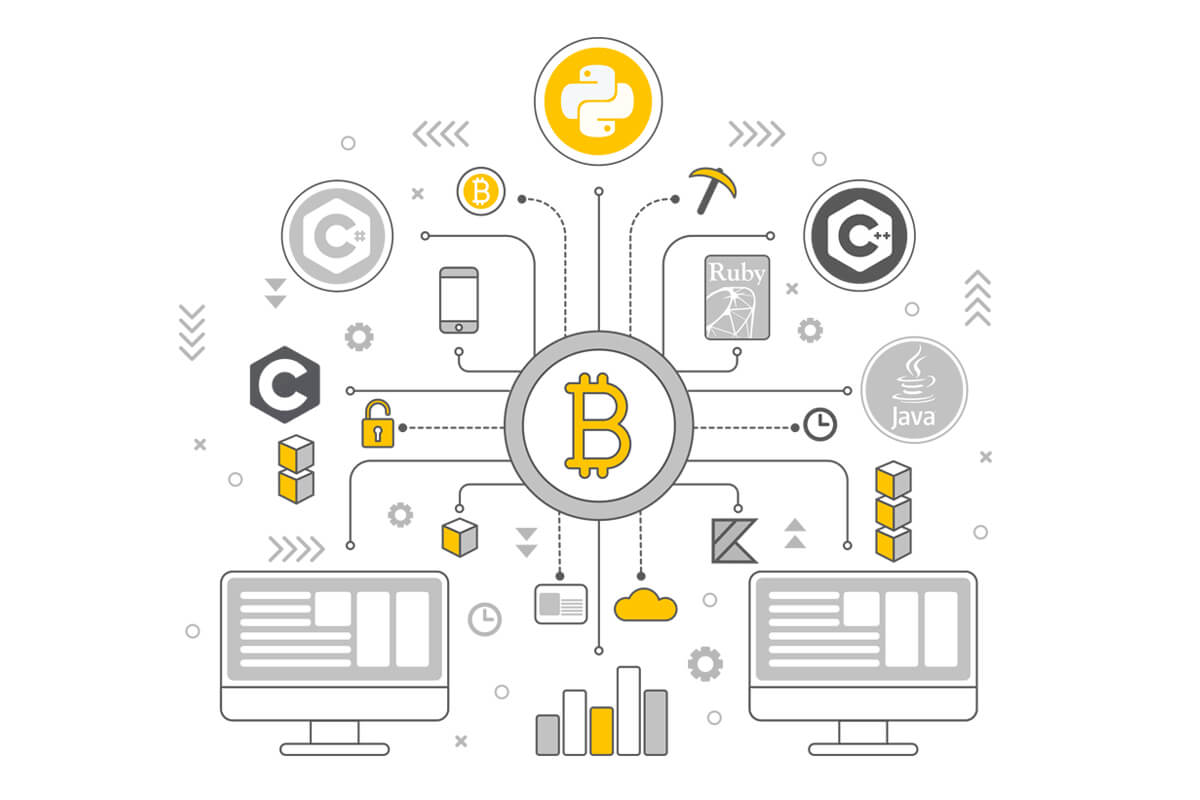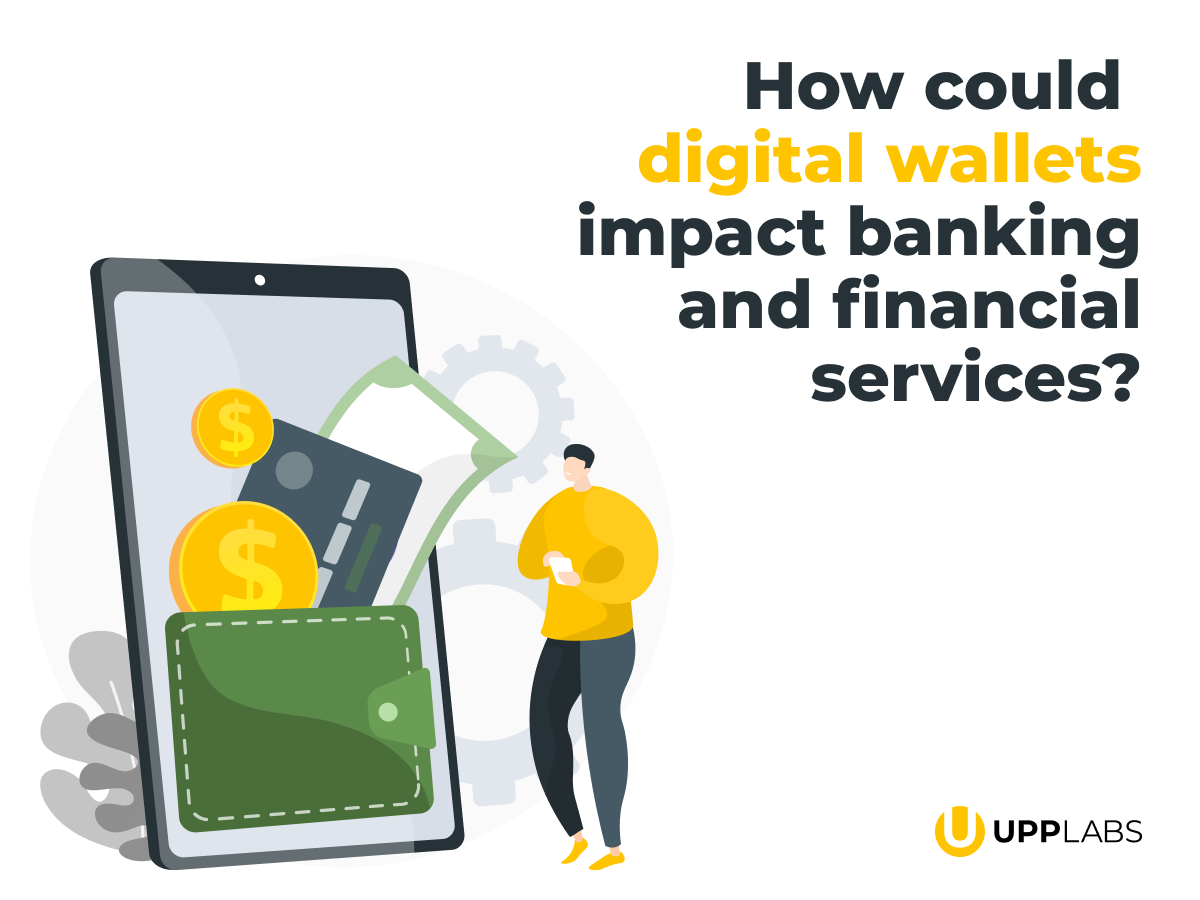Technological progress has given a great impact on the development of many areas of Fintech (financial technologies) – like mutual crediting, non-bank loans, deposits, accounting systems, personal finance, individual investments, crowdfunding, payments, researches, financial advice, and even use of cryptocurrency.
Actually, Fintech is all around us. Fintech’s benefits include flexibility (the ability to respond immediately to changes in market demand), innovations, and the ability to attract customers who like to use technologies. Fintech services are used by those who prefer speed, convenience, and ease of use of the service.
Over the last 5 years, UppLabs mastered the skills and gained experience in creating reliable, secure, and sophisticated fintech products. We have strong knowledge of Fintech trends and innovations, constantly learn, visit the best fintech conferences, and have the best team of professional web and mobile developers. Our experience shows that the tech stack you use will determine the possibilities and limitations of your product. That’s why we collected the best Fintech tech stack practices that we would like to share.
The most popular products in fintech now
Fintech is highly used in business. These companies can be divided into such categories:
- Cryptocurrency and digital currency like Bitcoins, Litecoins, Namecoins, NXT and PPCoins.
- Blockchain technology, using a decentralized system.
- “Smart contracts” that are used for the safe exchange of money and data without the help of third parties.
- InsurTech – technologies that are used in the insurance industry to streamline processes.
- RegTec (regulatory technology) – technologies that ensure fast and reliable compliance with legal regulations. Now their popularity is growing, as various countries are actively introducing legislative standards for FinTech companies, which have to be monitored to ensure their legal activity.
- Robo-advising is software algorithms that include various types of investment tips.
- Stock-trading apps allow investors to buy and sell stocks easily with the help of their mobile devices.
- AI solutions are a combination of big data and management solutions. AI analyzes the performance of a financial institution and automates the main organizational processes.
- Non-banking services that offer services to low-income people who can’t receive support from traditional banks or other financial companies.
- Cybersecurity. Protecting networks, systems, and programs from digital attacks.
- Mobile payments – services that allow customers to exchange money and payments online or on mobile devices (including popular payment app Venmo).
- Crowdfunding platforms allow internet and app users to transfer the money on the platform and offer individuals or businesses to pool funding from different sources all in the same place.
- Open banking, a set of solutions and processes that allows banks to reliably exchange financial information and services electronically and with the permission of customers. By opening access to their data and products through the application program interface (API), the bank allows third-party developers to effectively integrate banking services with financial and non-financial applications and services.
- RPA (robotic process automation). It is a form of business process automation technology based on metaphorical software of robots (bots) or artificial intelligence workers. RPA robots use the user interface to collect data and manage applications.
- Conversational interfaces are any UI that copies real human conversations. The idea here is to interact with it by telling the device what to do. There are two types of conversational interfaces that are becoming popular now: voice assistance and chatbots.
Technologies that are currently used for FinTech products
For Fintech founders, selecting programming languages and frameworks that are a fit for the needs of their Fintech companies should be prioritized. The main programming language that is leading now (2020) in Fintech projects is Java. It is followed by Python, Go, and PHP.
In Blockchain projects the most used languages are: Go, Python, Java, Ruby (Ruby on Rails), Scala (Akka), C ++ (.NET), C # (. NET). For the development of smart contracts developers prefer to use the Solidity language (for the Ethereum platform). We researched the list of technologies that are currently used for the main fintech businesses all over the world and discovered what are their main advantages:
Java
Java. Java remains one of the leading programming languages in the financial services world. It is a favorite programming technology for banks as it offers security and is convenient for implementing heavily loaded programs that can deal with a huge amount of data.
Java advantages:
- It’s secure (has runtime constraints and a powerful security manager)
- It is supported by many operating systems
Possible disadvantages:
- Its speed is quite slow
- It is memory-consuming technology
Python
Python is considered to be an ideal choice for the financial industry. It’s popular in the investment banking and hedge fund industries, many banks are using Python to solve problems regarding pricing, trade management, and risk management platforms. Python also offers answers to the most challenges of the financial industry while dealing with analytics, regulations, compliance, and data, as it offers a great variety of supporting libraries.
Python is becoming famous for its easier syntax and for being faster to program in comparison to other traditional languages, such as Java or C++. Fintech industry usually requests clear and strict data that’s why it’s important to use programming languages with a lower error rate.
Python advantages:
- It’s simple and clear
- It reduces software development costs and time to market
- It offers greater collaboration
- It has a large number of open-space financial libraries (SciPy, NumPy, pandas, pyalgotrade, pyrisk, zipline, quantecon.py, pyfolio, pybitcointools, finmarketpy, scikit-learn, ffn, pynance)
- It leads to lower error rates and less bug-hunting
Possible disadvantages:
- It doesn’t support web browser
- It has some design restrictions
C++
C++ is used in the FinTech industry for programs where execution speed is of high priority, as C++ is well known for its efficiency. This programming language is usually applied to programs that need advanced computations and have to deal with numerous operations very quickly. Besides, C++ is one of the best technologies used for quantitative finance and analytics.
C++ advantages:
- It is fast and efficient
- It promotes code reusability
- It has a wide range of tools for any kind of project
Possible disadvantages:
- It’s quite complex, old, and massive
- It can’t be security reliable
C#
C# is a simple and elegant programming language and it mostly used to build .NET programs for the Microsoft operating system, as well as 3D Unity games, websites, and mobile apps.
C# advantages:
- It has cross-language interoperability
- It took the best functions from C and C++ and even something from Java
- It has a great number of useful libraries
- It is a type-safe programming language
Possible disadvantages:
- It works slower than C and C++
- It depends too much on .NET
C
Another popular option is C programming technology that is used often for embedded systems, databases, billing software, advanced scientific systems, and bank management platforms. Companies usually prefer using C for point of sale (POS) devices, POS console systems, and cash register terminals.
C advantages:
- It can be used for hardware or web apps
- It is highly portable
- It has many ready-made third-party solutions
- Its compiler optimizes C code for faster execution
Possible disadvantages:
- It doesn’t have a reusable code
- It has a lack of flexibility
Ruby
Ruby. In Fintech, Ruby is only starting its way but is already quite popular while building the digital payment systems, asset management systems, e-wallets, and analytical and financial dashboards.
Ruby advantages:
- It has many ready-made plugins
- Its main framework – Ruby on Rails – is a powerful tool for creating highly secure code, scalable and maintainable apps
- It is cost-efficient and has a very high speed
Possible disadvantages:
- It can be hard to find needed documentation in a big amount of information
- The boot speed can be slow
Kotlin
Kotlin is a modern open-source language used to build web applications, mobile applications for Android, backends, and is called to be an excellent replacement for Java. Additionally, Kotlin is a good choice for mobile app development for building modern digital banking services and delivering top-quality and secure products.
Kotlin advantages:
- It’s highly performant and compatible with any Java app
- It has an JVM version that depends on the Java Class Library
- It has a broad range of tools, frameworks, and libraries
- It has a stable and tested concurrency model
- It has reliable and easy syntax
- It is based on an established API
Possible disadvantage:
- There are not so many Kotlin experts on the market!
The new solutions during the quarantine
Rapid development of technology, and the inability of many businesses to work offline because of the quarantine, as well as the appearance of new types of entrepreneurs with fresh enthusiasm and knowledge of finance, have become the reason for new fintech solutions. One more essential aspect that has improved innovation in this industry is the idea of remodeling customer experience and provision to various weak points.
Here’s a list of the top 10 innovations in this industry, that are facing new changes and improvements:
- Digital-only banks. Digital-only banks have shown more benefits while people had no possibility to visit the actual banking institutions. They are made to reduce the need of customers to spend time visiting any bank, standing in lines, and dealing with annoying paperwork. They’re growing in numbers all over the world. When a bank that exists only in the virtual world offers P2P transfers, global payments, contactless MasterCard with free transaction fees, a possibility to exchange and buy any kinds of cryptocurrencies, it makes the financial system working more smooth and quick. Examples are Revolut, Moven, Monese, HelloBank, FirstDirect, and Ukrainian Monobank.
- P2P lending. This is the great example of advantages for both lenders and borrowers that use a tech platform. This solution allows borrowers to receive and transfer financing operations from multiple individuals. The process of getting the loan gets simpler while the lenders are becoming investors who are looking at using their savings in a source that provides better returns as compared to traditional debt markets. The platform is an easy model allowing individual businessmen to borrow from a group of lenders.
- Payment innovations. This solution has multiple components and includes mobile payments, mobile wallets, contactless payments, smart speaker systems, AI and machine learning for security, identity verification technologies. These digital innovations allow us to use cashless transactions even while being at home.
- Smart contracts. The use of digital contracts that can be performed independently when the conditions are met is getting more popular in the era of remote work. In smart contracts, both parties sign a smart contact with the help of cryptographic keys as a digital signature. The contracts are encoded in computer language and the codes are virtually tamper-proof.
- Alternative insurance underwriting. Alternative insurance underwriting includes gathering data based on medical history, background, lifestyle, and social signals of individuals. This data united with algorithms and analytics help fintech offering insurance products of highly customized insurance premiums together with alternative payment options based on their concrete needs and skills.
- Distributed ledger technology (DLT). It is a database divided between several parties (nodes) to perform mutually agreed transactions based on a specific consensus mechanism. A key feature is that all nodes have identical versions of data that are output from the central trusted party. These characteristics make cyberattacks and data changes difficult. An example is Blockchain technology.
TOP-5 industry trends in Fintech development
We can identify the main directions of institutional changes in financial systems that occur in the world fintech development industry:
- changes in regulatory and legal support for the development of the fintech sector and the functioning of non-financial companies that provide financial services;
- development of specialized infrastructure (hackathons, hubs, Internet platforms);
- introduction of new business models and provision of financial services and functioning of financial institutions (sharing economy and business ecosystem);
- decentralization of the financial services network;
- extension of fintech to the sector of non-banking institutions (InsurTech).
The development of digital technologies makes it possible to remove the binding of the consumption of financial services to the location of their consumer, and to make complex financial products that are not rigidly tied to the distribution channel.
Summary of the TOP-5 most used technologies in Fintech development
Regarding the choice of the right technology, it’s essential to find the one that will be the foundation of your project. The technology stack has to fit all the project criteria and meet the demands of the project’s goal. Each programming language is great for a specific purpose, so it’s important to make sure to define a clear understanding of what the project is going to be like.
Based on the criteria and advantages mentioned above, we can highlight the following five that are leading the world Fintech market:
- Java
- Python
- C++
- C#
- Ruby
Looking at the high level of dependability, Java is highly unlikely to lose its top place as the most preferred programming language by the financial institutions. On the other hand, FinTech requires concrete programming features that can get better managed with Python than Java or any other programming language.
Analysis of the famous Fintech products
We’ve decided to make an analysis of the well-known American Fintech products to show what technologies they use:
- Avant
The company was founded in 2012 in Chicago and is a privately-owned, online lending platform that allows to lower the costs and barriers of borrowing for middle-income consumers. It uses proprietary software to rate the creditworthiness of customers for unsecured personal loans and credit cards, at interest rates that vary from 10% to 36%.
Let’s have a look at this platform to understand (https://builtwith.com/) what technologies the company uses:
- Frameworks: Ruby on Rails and Gatsby.js.
- JavaScript Libraries and Functions: jQuery, jQuery UI, Angular.js, React.js.
- Web Hosting Providers: Amazon AWS EC2 Infrastructure.
Some files are stored in Amazon S3 CDN. - Cashing: Rack Cache.
- Analytics and Tracking: Hotjar (user heat map, user activity recording), Optimizely (A/B testing), Google Analytics.
- SoFi
The company was founded in 20100 in San Francisco by four students who met at the Stanford Graduate School of Business. It now offers student personal loans, loan refinancing, mortgage loans, wealth management, and life insurance. SoFi has become a multi-billion-dollar company with more than $19 billion of loans funded and more than 900,000 members. In 2019 it released a new product called Stock Bits, which offers customers to buy and sell fractional shares of 50 popular stocks for as little as $1.
Using Builtwith again, we see that this platform uses the next technologies:
- Frameworks: PHP.
- JavaScript Libraries and Functions: jQuery, jQuery UI, d3.js.
- Web Hosting Providers: Amazon AWS EC2 Infrastructure.
- Analytics and Tracking: Hotjar, Optimizely, Google Analytics.
- PitchBook
PitchBook is a financial software, investments, and data company from Seattle that provides information about public and private equity markets. The platform offers potential investors to capitalize on new business opportunities on the basis of diligence research of the private market fundraising sources.
This platform in built with:
- JavaScript Libraries and Functions: jQuery, Mustache.js.
- Web Hosting Providers: Apache, nginx.
- Analytics and Tracking: Hotjar, Marketo, Google Analytics.
Technologies we use in UppLabs
Our company creates online e-trading platforms that offer real-time solutions with various trading fintech opportunities. Our portfolio includes the use of modern architecture that guarantees easy maintenance and easy integration with the best fintech services. For these purposes we give our preferences to such technologies as:
- .NET
- Java
- Python
- React.js
- Vue.js
- Angular.js
- React Native
- Node.js
- Ruby on Rails
All these platforms are most often used to create web services that require intensive information exchange with users, including the implementation of chats, collaboration systems, social networks, etc.
From the foregoing, it can be seen that Fintech is going to revolutionize the financial sector in many ways, from increasing the use of payment gateways to providing landings. With much easier account systems and transactions, fintech will also influence the world’s e-commerce industry.
If you’re looking for a Fintech development partner – there is no point in further search!
Check our expertise here. Or
UppLabs is a perfect companion to lift you Upp!



